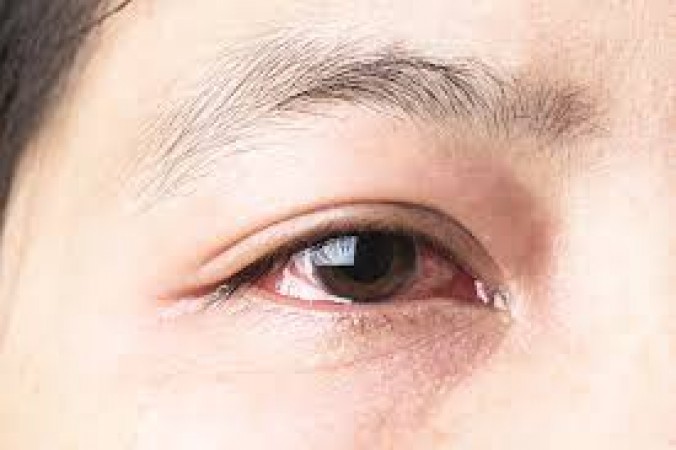
As temperatures continue to rise, the prevalence of eye diseases is on the upswing. It's crucial to safeguard yourself from infections and other related ailments by implementing these essential tips for eye health.
The scorching heat and intense sunlight of summer can wreak havoc on your eyes, leading to various eye diseases and discomfort. Understanding how these environmental factors affect eye health is essential for taking proactive measures to protect your vision.
Ultraviolet (UV) radiation is a major culprit behind eye damage caused by prolonged exposure to sunlight. UV rays are invisible to the naked eye but can penetrate deep into the eye, posing a significant risk to ocular health.
Excessive exposure to UV radiation is associated with several eye diseases, including cataracts, macular degeneration, and photokeratitis (sunburn of the cornea). Cataracts occur when the lens of the eye becomes cloudy, leading to blurry vision and eventual blindness if left untreated. Macular degeneration affects the macula, the central part of the retina responsible for sharp, central vision, resulting in irreversible vision loss. Photokeratitis, often referred to as "snow blindness" or "sunburn of the eye," is a painful condition caused by overexposure to UV rays, resulting in inflammation of the cornea.
To mitigate the risks posed by heat and sunlight-related eye diseases, it's essential to adopt preventive measures and incorporate eye-protective practices into your daily routine. Here are some practical tips to safeguard your eyes from harm:
Invest in high-quality sunglasses that offer 100% UV protection. Look for sunglasses labeled with UV 400 or "100% UV protection" to ensure adequate shielding from harmful UV rays. Additionally, choose sunglasses that provide ample coverage for your eyes and the surrounding areas, including the delicate skin around your eyes.
Complement your eye protection regimen by wearing wide-brimmed hats or visors when venturing outdoors. Wide-brimmed hats provide additional shade and coverage, reducing the amount of direct sunlight that reaches your eyes. Opt for hats with brims that extend at least three inches to effectively shield your eyes from overhead sunlight.
Maintaining optimal hydration levels is crucial for overall health, including eye health. Dehydration can exacerbate dry eye symptoms and increase susceptibility to eye irritation and discomfort. Ensure you drink an adequate amount of water throughout the day to keep your body and eyes well-hydrated. Consider carrying a reusable water bottle with you to stay hydrated, especially during hot weather or prolonged outdoor activities.
Limit prolonged exposure to digital screens, such as computers, smartphones, and tablets, to reduce eye strain and fatigue. The extended use of digital devices can contribute to symptoms of digital eye strain, including dry eyes, blurred vision, and headaches. Adhere to the 20-20-20 rule: take a 20-second break every 20 minutes and focus on an object at least 20 feet away to alleviate eye strain and maintain visual comfort.
Combat dry eyes and alleviate discomfort by using lubricating eye drops as needed. Dry eye syndrome, characterized by insufficient tear production or poor tear quality, can be exacerbated by environmental factors such as heat and sunlight exposure. Keep a bottle of preservative-free artificial tears or lubricating eye drops on hand to soothe dry, irritated eyes and restore moisture to the ocular surface.
Maintain proper eye hygiene practices to prevent eye infections and minimize the risk of contamination. Avoid touching your eyes with unwashed hands, as this can introduce harmful bacteria and viruses into the eyes, leading to infections such as conjunctivitis (pink eye) or keratitis. Wash your hands thoroughly with soap and water before touching your eyes or handling contact lenses to reduce the spread of germs. Additionally, regularly clean and disinfect eyeglasses, sunglasses, and contact lenses to prevent bacterial buildup and maintain optical clarity.
When outdoors, seek shade whenever possible to reduce direct exposure to sunlight and minimize the risk of UV-related eye damage. Find shelter under trees, awnings, or umbrellas to create a protective barrier against harmful UV rays. Even on overcast days, UV radiation can penetrate cloud cover and reach your eyes, so it's important to remain vigilant about sun protection regardless of the weather conditions.
Schedule routine eye examinations with an eye care professional, such as an optometrist or ophthalmologist, to monitor your eye health and detect any potential issues early on. Regular eye exams are essential for maintaining optimal vision and identifying underlying conditions that may require treatment. Your eye care provider can assess your risk factors for sun-related eye diseases and recommend appropriate protective measures, such as prescription sunglasses or UV-blocking contact lenses. Be proactive about your eye health and prioritize regular check-ups to ensure lifelong vision wellness. Protecting your eyes from the harmful effects of heat and sunlight is paramount for maintaining clear vision and preserving ocular health. By incorporating these practical tips into your daily routine, you can minimize the risk of eye diseases and enjoy optimal visual comfort year-round. Remember to prioritize sun protection, stay hydrated, and practice good eye hygiene to safeguard your eyes against environmental hazards. With proactive care and preventive measures, you can promote long-term eye health and preserve your precious sight for years to come.
What are the signs of prostate cancer, do you also have this?
How Eating Right Can Ward Off Disease and Slow Aging
Know This Skincare Routine That Erases Years in Just One Week